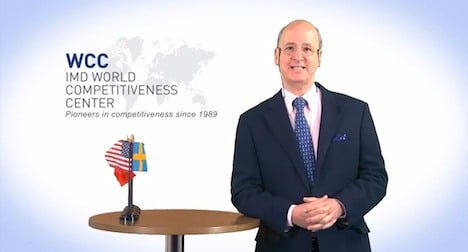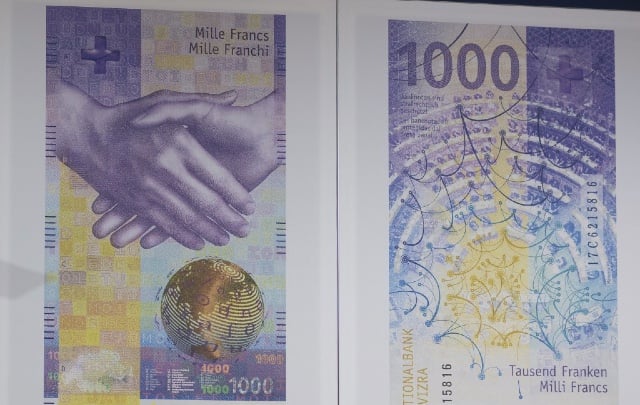In its annual ranking for 2013, released on Thursday by the Lausanne-based Institute for Management Development, the United States jumped ahead from the number two slot in which it found itself in 2012.
The American improvement was thanks to a rebound of its financial sector, abundant technological innovation and successful companies, IMD said.
Last year's frontrunner, Hong Kong, meanwhile fell to third place in the 2013 ranking, while Switzerland moved up to second from third.
Sweden moved up to fourth place from fifth last year, trading places with Singapore which dropped to fifth.
"We base our study on 333 criteria, two-thirds of them statistics and the remaining third opinion polls," Stéphane Garelli, head of the IMD World Competitiveness Center, told AFP.
"In the end, the golden rules of competitiveness are simple: manufacture, diversify, export, invest in infrastructure, educate, support SMEs, enforce fiscal discipline, and above all maintain social cohesion," he said.
Running from the United States to last-placed Venezuela, the 60-economy ranking also helps flag up broader economic trends.
"While the eurozone remains stalled, the robust comeback of the US to the top of the competitiveness rankings, and better news from Japan, have revived the austerity debate," said Garelli.
"Structural reforms are unavoidable, but growth remains a prerequisite for competitiveness," he said.
"In addition, the harshness of austerity measures too often antagonizes the population. In the end, countries need to preserve social cohesion to deliver prosperity."
While the United States is well-positioned in the short-term, it is also expected to outperform in the longer term due to anticipated higher oil and gas production, which will keep energy prices low compared to those in Europe, Garelli indicated in a statement.
The top 30 includes 10 members of the austerity-gripped European Union, with Germany and Britain at an unchanged ninth and 18th respectively.
Ireland rose from 20th to 17th, and France from 29th to 28th.
Japan also climbed from 27th place to 24th.
The IMD underlined the impact of Japan's "Abenomics" — Prime Minister Shinzo Abe's drive to ramp up the money supply and offer fiscal stimulus — saying it seemed to be having an impact on the dynamism of the world's third-largest economy.
Fortunes were mixed for the BRICS group of emerging economies, made up of Brazil, Russia, India, China and South Africa.
China climbed to 21st from 23rd, and Russia to 42nd from 48th.
But India slipped from 35th to 40th, Brazil from 46th to 51st, and South Africa from 50th to 53rd.
"Brazil, Russia, India, China and South Africa are immensely different in their competitiveness strategies and performance, but the BRICS remain lands of opportunities," said Garelli.
Click here for the IMD press release.



 Please whitelist us to continue reading.
Please whitelist us to continue reading.
Member comments